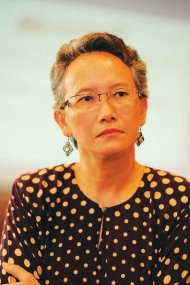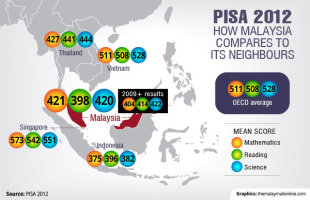ony Blair and George Bush exchanged voluminous correspondence prior to the start of military operations in Iraq. Now, the UK is moving to declassify details of the talks for an inquiry into Britain’s involvement in the conflict, British media reported.
The release, set for the upcoming year, is expected to include more than 100 documents, described as a collection of notes, records of 200 minutes of ministerial level talks, telephone conversations and private meetings between the British prime minister and American president, The Independent reported.
This will give the green light for the Chilcot Iraq Inquiry to publish an account of the conflict, where much attention will be given to decisions made by then Prime Minister Tony Blair. Indeed, the files could play a major part in determining Blair’s historical legacy, which critics say has been stained by the Iraq War.
Blair has been criticized for failing to challenge then-US President George W. Bush on Iraq’s alleged weapons of mass destruction, specifically chemical and biological weapons, which a Joint Intelligence Committee report said in September 2002 “could be ready for firing in 45 minutes.”
The former Labour leader said he worked to restrain the Bush administration’s seeming determination for military involvement in Iraq, even as UN weapons inspectors on the ground failed to discover any chemical or biological stockpiles.
A senior government official predicted the results of the inquiry will not do Blair any favors: "In the new year it seems the Chilcot inquiry is going to be published. Everyone will be assuming: bad hair day for Tony Blair and Jack Straw." Straw served as Blair’s secretary of state.
One noteworthy correspondence between Blair and Bush, contained in a note dated July 2002, suggests the then prime minister had pledged Britain’s support to the United States in a military operation to oust former Iraq President Saddam Hussein.
Blair told the inquiry: "In a sense what I was saying to America was: 'Look' – and by the way, I am absolutely sure this is how George Bush took it – 'whatever the political heat, if I think this is the right thing to do I am going to be with you. I am not going to back out because the going gets tough. On the other hand, here are the difficulties and this is why I think the UN route is the right way to go.’"
Meanwhile, a British government source on Sunday said officials were trying to declassify the records in a way that does not threaten national security.
“The intention is to be as open as possible,” the source, who spoke on condition of anonymity, was quoted as saying by The Independent. “There is an ongoing process of declassification, which is attempting to strike a careful balance to ensure that you are not setting a legal precedent that could oblige you to publish other documents in the future or damage national security.”
Aside from providing a public account of the government’s actions in the run-up to the Iraq War, publication of the documents will also allow individuals who come in for criticism in the report to explain their actions before hostilities in Iraq began.
A Cabinet Office spokeswoman commented on Sunday: “The Government is currently engaged in discussions with the [Iraq] inquiry which the inquiry recognizes raises difficult issues, including legal and international relations issues.
“As the exchange of letters between government and the inquiry shows, these issues are being worked through in good faith and with a view to reaching a position as rapidly as possible. The inquiry should be allowed to publish its findings and we should not pre-empt the content of the report.”
There has been some speculation, however, as to how effective the Iraq Inquiry can hope to be in determining the British government’s - not to mention Tony Blair’s - position on jumping on board George W. Bush’s Iraq war bandwagon.
UK officials said their “intention is to be as open as possible,” yet the final decision on what will be released will be made by cabinet secretary, Sir Jeremy Heywood, the same individual who fought against publication of the Blair-Bush correspondence in the first place.
UK officials said their “intention is to be as open as possible,” yet the final decision on what will be released will be made by cabinet secretary, Sir Jeremy Heywood, the same individual who fought against publication of the Blair-Bush correspondence in the first place.
At the same time, another government source told The Independent, “There are likely to be some redactions – but only where absolutely necessary.”
The decision to invade Iraq, which led to a lengthy war that ran from March 2003 until December 15, 2011, attracted large protests around the world, and caused the United States to lose much of the global support it had received in the immediate aftermath of the terrorist attacks of 9/11.
In November 2003, Bush paid a visit to London where he pledged, amid large protests, that“democracy would succeed” in Iraq due to America’s military intervention in the country. One decade later, however, the country is experiencing regular episodes of violent acts, mostly in the form of terrorist bombings, a largely unheard of phenomenon before US troops invaded the country in 2003.
In Iraq, an estimated 8,955 people have died, making 2013 the deadliest year since 2008, according to the Iraq Body Count.
In September 2004, Kofi Annan, then UN Secretary General, expressed his views on the invasion, saying,"I have indicated it was not in conformity with the UN Charter. From our point of view, from the Charter point of view, it was illegal."
The Chilcot Inquiry, named after its chairman, Sir John Chilcot, who pushed for the release of the classified documents, is expected to be released by the end of 2014.










